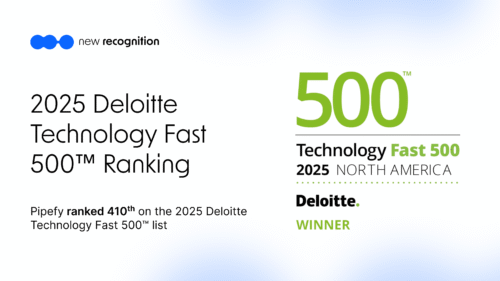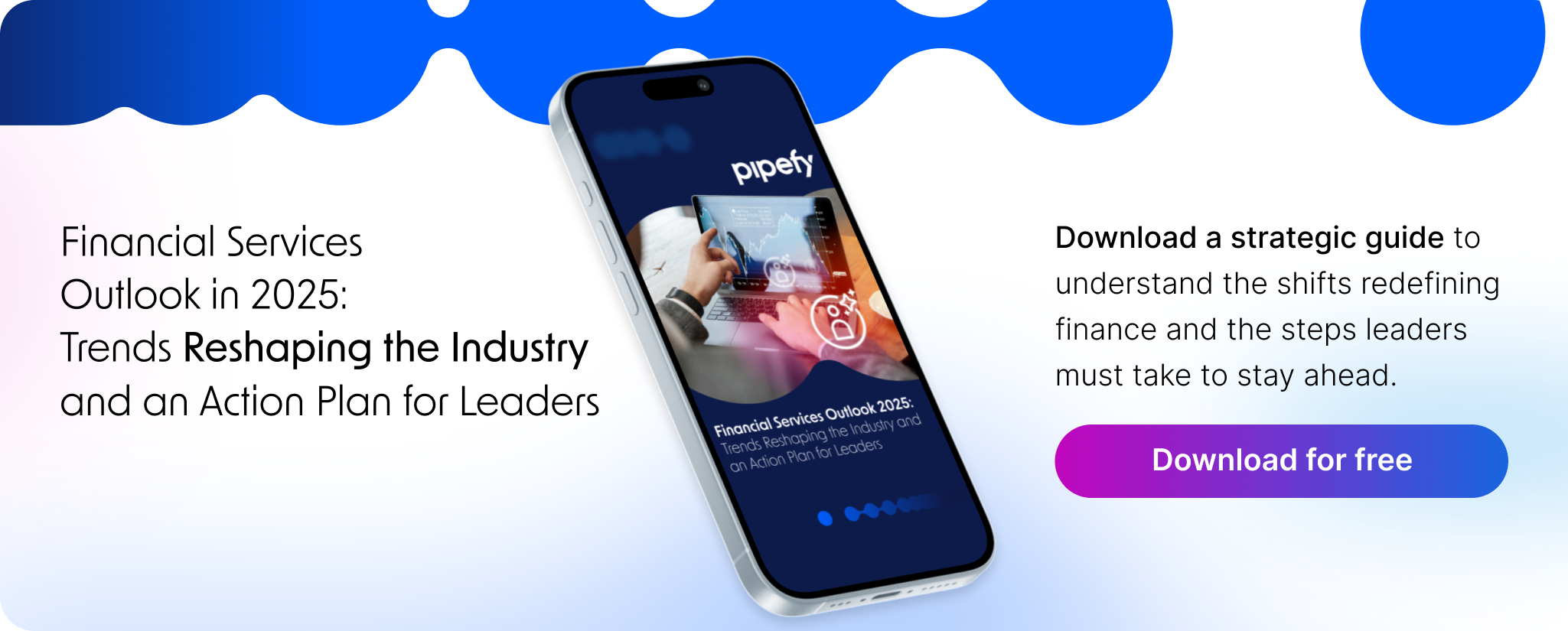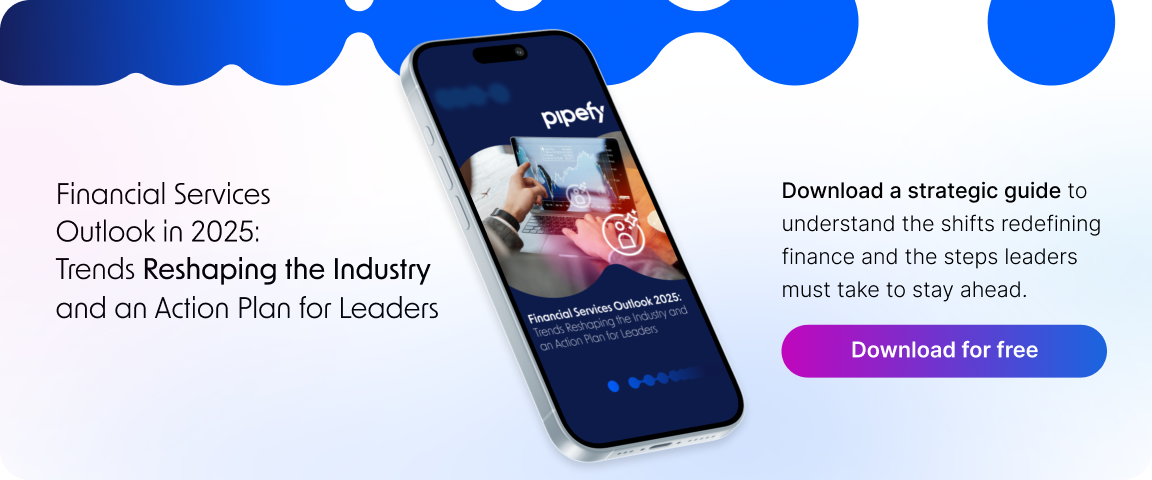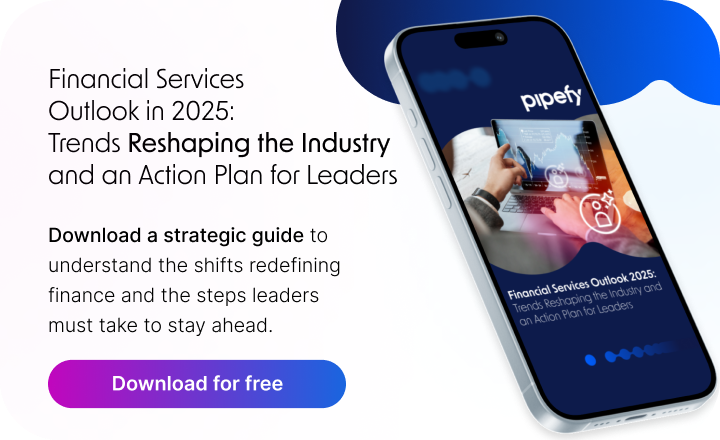
The impact of artificial intelligence is significantly transforming the job market. Its adoption reshapes business strategies, optimizes processes, and creates new opportunities for companies and employees.
Artificial Intelligence drives a true technological transformation, redefining responsibilities and roles while enabling more accurate, data-driven decisions. The growing presence of AI in the job market has led to profound changes, from task automation to new demands for technological skills.
In this article, we will explore how the impact of artificial intelligence is driving changes in the job market. We’ll discuss its benefits, the challenges for companies and employees, and how tools like Pipefy can support the transition to this new reality.
How Does Artificial Intelligence Impact Business Strategies?
The impact of artificial intelligence is redefining business strategies across all industries. By introducing automation and real-time analytics capabilities, this technology enhances operational efficiency and supports more precise strategic decision-making.
This integration reinforces the presence of AI in the job market, enabling companies to become more competitive and adaptable to meet the demands of an ever-evolving market.
Companies that incorporate artificial intelligence can predict trends, allocate resources more accurately, and improve customer interactions, becoming more competitive and adaptable in a constantly changing market.
Key Benefits for the Job Market
Artificial intelligence brings numerous benefits to the job market, from optimizing routine tasks to creating new opportunities. Here are some of the most relevant impacts:
Task Automation
One of the clearest signs of artificial intelligence’s impact is the automation of manual and repetitive tasks. Processes like data entry or document organization can be performed quickly and accurately, allowing employees to dedicate more time to creative and strategic activities.
This change directly reflects the transformation brought by AI to the job market, optimizing operations across various sectors.
Improved Decision-Making
With AI, companies can process large volumes of data and quickly gain valuable insights. Pattern analysis, trend identification, and predictive simulations help make more precise decisions, reducing errors and maximizing results.
This feature makes AI in the job market a fundamental ally for managers and leaders seeking data-driven strategies.
Service Personalization
The impact of artificial intelligence is also evident in the personalization of customer experiences. AI-based tools can identify preferences, offer tailored solutions, and create more efficient customer service, resulting in greater loyalty and business growth.
Emerging Professions
While some roles are automated, new professions are emerging due to AI’s evolution. Positions such as data analysts, AI solution developers, and automation managers are examples of in-demand roles.
This trend highlights the importance of AI in the job market, creating opportunities for skill development and innovation.
Challenges and Adaptations in the Age of AI
Despite the advancements brought by artificial intelligence, challenges arise that require technological and cultural adaptations within companies. These adjustments are essential to harness the impact of artificial intelligence in a positive and integrated way.
How AI Is Redefining the Corporate Environment
The integration of artificial intelligence not only optimizes operations but also redefines the organization of the corporate environment. Roles are adjusted, and collaboration between humans and technology becomes increasingly important to achieve the best results.
Balancing Employees and AI
AI doesn’t replace human teams but complements their skills, promoting greater efficiency and freeing employees to focus on more creative and innovative activities. This balance strengthens human contributions while enhancing overall company performance.
Training and Upskilling Teams
To successfully integrate AI, investing in team training is essential. Training in technological tools and data analysis helps employees adapt to changes.
Human oversight remains critical to ensure the quality and alignment of technological operations, reinforcing trust in the use of AI in the job market.
Pipefy and the Future of AI
Pipefy positions itself as an essential solution for companies looking to adopt artificial intelligence in a practical and efficient way. The platform combines advanced automation with user-friendly tools, transforming workflows and delivering clear results.
No-Code Technology
With no-code features, Pipefy allows companies to implement automation without requiring advanced technical skills. Its intuitive interface enables any team to easily build and adjust workflows, integrating artificial intelligence into their daily operations.
Autonomous Agents
Pipefy’s AI Agents are designed to automate complex processes, from data management to information triage. They help reduce bottlenecks and improve operational efficiency.
Centralization and Visibility
Pipefy offers a centralized platform where data and workflows can be organized and monitored in real time. This increases visibility and control over all stages of a process, making management easier for teams and leaders.
The impact of artificial intelligence on the job market will continue to grow in the coming years, bringing profound changes for companies and employees. From automating manual tasks to creating new professions, this technology is reshaping the future of work.
However, its adoption also requires training and adaptation to ensure harmony between people and technology. With Pipefy, companies can leverage the impact of artificial intelligence practically, centralizing processes, optimizing workflows, and driving tangible results.
Schedule a free demo and experience the impact of artificial intelligence on your company!










